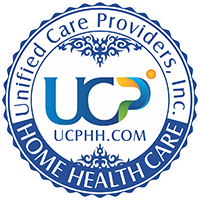Essential Support for Home Healthcare

Skilled nursing care is a vital component of home healthcare, providing professional medical services to individuals who require specialized care but prefer to stay in the comfort of their own homes. This type of care is typically administered by registered nurses (RNs) or licensed practical nurses (LPNs) under the supervision of a physician. Skilled nursing care ensures that patients receive high-quality medical attention while maintaining their independence and comfort.
Key Services in Skilled Nursing Care
1. Medication Management
Many patients, especially seniors and those with chronic conditions, require precise medication management to avoid complications. Skilled nurses ensure:
- Proper medication administration (oral, injection, or intravenous)
- Monitoring for side effects and drug interactions
- Educating patients and caregivers on medication schedules
2. Wound Care and Post-Surgical Recovery
For individuals recovering from surgery or injuries, proper wound care is crucial to prevent infections and promote healing. Skilled nurses provide:
- Dressing changes and wound monitoring
- Infection prevention and control
- Post-operative monitoring and pain management
3. Chronic Disease Management
Patients suffering from chronic illnesses such as diabetes, hypertension, heart disease, or respiratory conditions benefit greatly from skilled nursing care. Services include:
- Blood pressure and blood sugar monitoring
- Nutritional counseling and lifestyle recommendations
- Managing symptoms to prevent hospital readmissions
4. Intravenous (IV) Therapy and Injections
Some medical treatments require IV administration, which skilled nurses can manage at home. These include:
- Antibiotic therapy
- Pain management
- Hydration and nutrition support
5. Catheter and Ostomy Care
Patients with urinary catheters or ostomy bags need regular maintenance and monitoring. Skilled nurses assist with:
- Catheter insertion, care, and removal
- Ostomy site cleaning and dressing changes
- Education on self-care techniques
6. Monitoring Vital Signs and Health Assessments
Regular health assessments help detect early signs of complications. Skilled nurses perform:
- Blood pressure, heart rate, and temperature checks
- Respiratory assessments for lung conditions
- Evaluations of overall health status
Benefits of Skilled Nursing Care at Home
- Personalized Care – Patients receive tailored medical services that fit their specific health needs.
- Comfort and Convenience – Eliminates frequent hospital visits and allows patients to recover in a familiar environment.
- Cost-Effective – Reduces hospital and nursing home expenses while maintaining high-quality care.
- Improved Quality of Life – Patients experience better emotional and mental well-being when cared for at home.
- Reduced Risk of Infections – Home care minimizes exposure to hospital-acquired infections.
Who Needs Skilled Nursing Care?
- Seniors with complex medical needs
- Patients recovering from surgery or injury
- Individuals with chronic illnesses requiring regular monitoring
- Those with mobility limitations needing medical supervision
- Patients needing palliative or hospice care
Conclusion
Skilled nursing care plays a crucial role in modern home healthcare, offering professional medical support while allowing patients to remain in a comfortable home setting. With specialized care tailored to individual needs, skilled nurses help improve health outcomes and enhance the overall quality of life.
